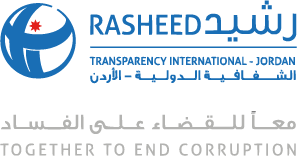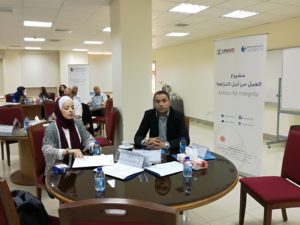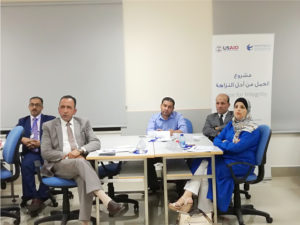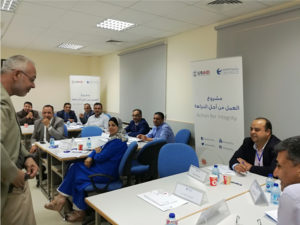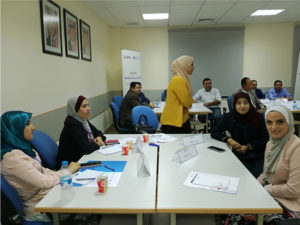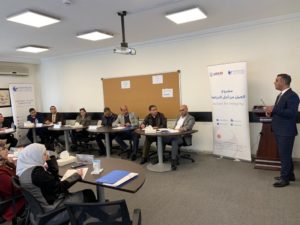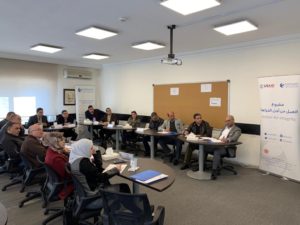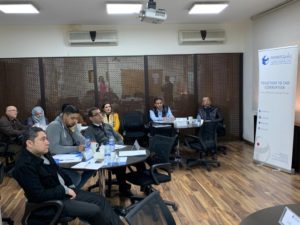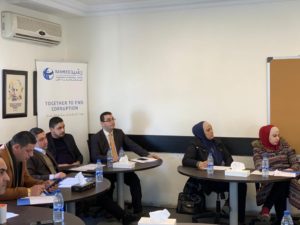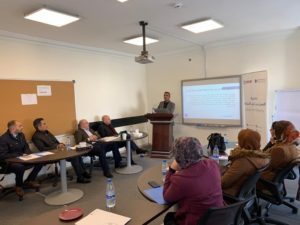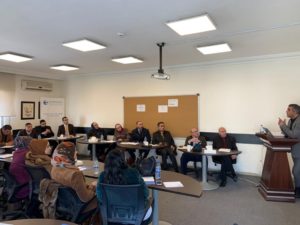Action For Integrity Project
Brief
To support the Integrity and Anti-Corruption Commission in the implementation of specific projects within its strategy (National Strategy for Integrity and Anti-Corruption 2017-2025).
This project aimed to support the Integrity and Anti-Corruption Commission in implementing specific projects from its strategy (the National Strategy for Integrity and Anti-Corruption 2017-2020).
Goals
– Protecting and supporting the concept of the rule of law and monitoring the implementation of justice in all aspects of public administration.
– Impacting the professional and ethical behavior of private-sector employees, to improve performance, quality of services, and effective resource management.
Preparing leaders from future generations towards teamwork, and this includes awareness of the risks and effects of corruption as well as ways to combat it.
– Developing national laws to be compatible with the general environment of integrity and corruption, to close outlets of corruption.
– Measuring the extent of compliance of the national legal framework with international agreements with the United Nations Convention to Combat and Bilateral Agreements ratified by Jordan.
Outcomes/Activities
Activity 1: Youth against nepotism and favoritism
- Prepare the Integrity Unit and include it in the discussion sessions of the “Ana Usharek” program, held by the National Democratic Institute in 24 universities and colleges.
- Training 2304 students from the program Ana Usharek in the Integrity Unit.
- Writing 3 short stories by students of Usharek + on the dangers of mediation and nepotism addressed to school students, specifically grades three, six and ninth.
- Turn stories into puppet shows and plays in collaboration with Haya Cultural Center.
- Preparation of the pledge of the good citizen against nepotism and favoritism in cooperation with the students of the program Ana Usharek +.
- Translate short stories into puppet shows and display them in four governorates, and they were attended by 1,108 students from a targeted age group.
Activity 2: Compliance in the private sector with business principles for integrity and combating bribery.
- Review the draft code of conduct for the private sector.Provide a roadmap for how to implement this Code in the private sector. Review the Code of Conduct for the Integrity and Anti-Corruption Commission staff.
- Update the Shadow Report on the Review of Progress in Jordan for SDGs 4, 5, 6, and 10 of SDG 16 of the sustainable development goals for 2018 and 2019.
- Conduct training for Integrity and Anti-Corruption Commission staff on the complaints management system.
- Conduct training for staff of the Integrity and Anti-Corruption Commission and the Corporate Control Department on the 6-step Transparency International Model to build effective integrity and anti-corruption system in the private sector.
- Conduct training for Integrity and Anti-Corruption Commission staff on promoting integrity in the public and private sectors
- Conduct training for Integrity and Anti-Corruption Commission staff on Economic Crimes
- Conduct training for Integrity and Anti-Corruption Commission staff on Judicial
Activity 3: Collective action to promote compliance with the United Nations Convention against Corruption and bilateral agreements.
A legislative review for the investment sector has been undertaken in line with anti-corruption and bilateral agreements.
A legislative review for the corporate sector, in line with the United Nations Convention against Corruption and bilateral agreements.
The category targeted by the project.
The direct beneficiaries are:
- 2304 students in 24 universities and colleges.
- Private sector.
- Integrity and Anti-Corruption Commission staff.
- Haya Cultural Center.
- A number of private sector companies.
- Stakeholders related to the investment sector.
- Stakeholders related to the corporate sector.
Indirect beneficiaries:
- The general public.
- Chambers of Commerce and Industry.
- Professional and youth groups.
- Donors and development agencies.
- Civil society organizations.

